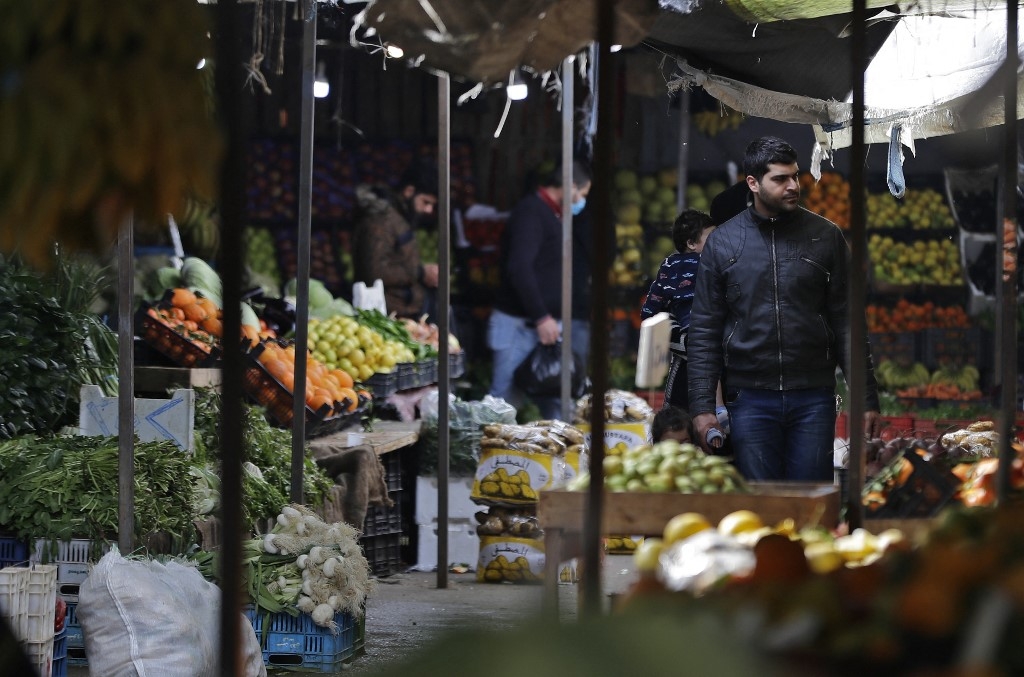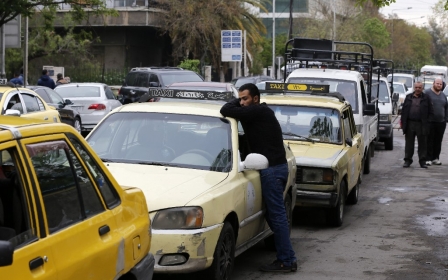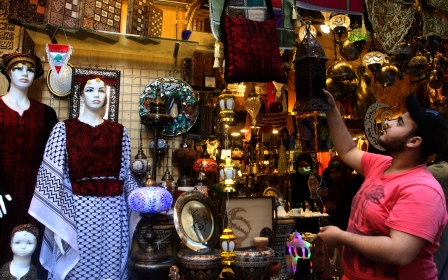Saudi Arabia bans Lebanese fruit and vegetables over drug smuggling concerns

Saudi Arabia has issued a ban on Lebanese fruit and vegetables over concerns of drug smuggling, in a move likely to add to Lebanon's economic woes.
The kingdom announced the ban on Friday shortly after the seizure of nearly 2.5 million amphetamine pills.
Lebanon has been engulfed in a severe economic crisis - worsened by August's massive chemical explosion in Beirut that caused damage throughout the capital city, the Covid-19 pandemic, and political deadlock that has caused a freeze on much-needed foreign aid.
'The export of Lebanese vegetables and fruits to the Gulf countries... was one of the few doors that [was] still open'
- Lebanese official
Losing parts of the Saudi market threatens to plunge the country even deeper into financial strife, as the country's total imports to Saudi Arabia were worth nearly $73m in the fourth quarter of 2020.
With its foreign reserves depleted, Lebanon's currency has already lost around 90 percent of its value since the start of the crisis in late 2019.
New MEE newsletter: Jerusalem Dispatch
Sign up to get the latest insights and analysis on Israel-Palestine, alongside Turkey Unpacked and other MEE newsletters
Lebanon's foreign ministry on Friday said the Saudi embassy had informed the office of the ban, which will take effect 9am on Sunday, local time.
"The decision was transferred to top officials," Lebanon's caretaker Foreign Minister Charbel Wehbe said in a statement.
'Pressure on Lebanon'
One Lebanese official, speaking on condition of anonymity, told Reuters that the ban appeared to be political.
"The export of Lebanese vegetables and fruits to the Gulf countries and especially the kingdom was one of the few doors that were still open to bring dollars into the country. Closing this import line increases pressure on Lebanon," he said.
According to Saudi officials, Lebanese products have been used to smuggle drugs into the Kingdom, either through shipments meant for Saudi markets or others headed to neighbouring countries, the state news Saudi Press Agency (SPA) reported on Friday.
The ban on Lebanese fruit and vegetables - which were identified as the main products being used in the smuggling - will last until Lebanese authorities provide "sufficient and reliable" guarantees they will take the necessary measures to stop systematic drug smuggling through the kingdom, SPA reported.
Mohammed bin Ali al-Naim, undersecretary for security affairs at Saudi Customs, said that Saudi customs authorities at Jeddah Islamic Port had recently uncovered an attempt to smuggle in more than 5.3 million Captagon pills, a type of amphetamine, hidden in pomegranate shipments that had come from Lebanon.
But a senior official at the Lebanese agriculture ministry told Reuters that "not a single document has emerged that shows that this merchandise that has Captagon in it is Lebanese".
Still, Lebanon's caretaker interior minister said the country was ready to cooperate with all states to fight drug smuggling, adding Beirut had exerted "tremendous efforts" to combat the illicit trade.
Gulf states, including Saudi Arabia, have so far been hesitant to offer aid to ease Beirut's economic woes, keeping their distance while alarmed by the rising influence of Hezbollah, a powerful group backed by Gulf regional rival Iran.
Middle East Eye delivers independent and unrivalled coverage and analysis of the Middle East, North Africa and beyond. To learn more about republishing this content and the associated fees, please fill out this form. More about MEE can be found here.





